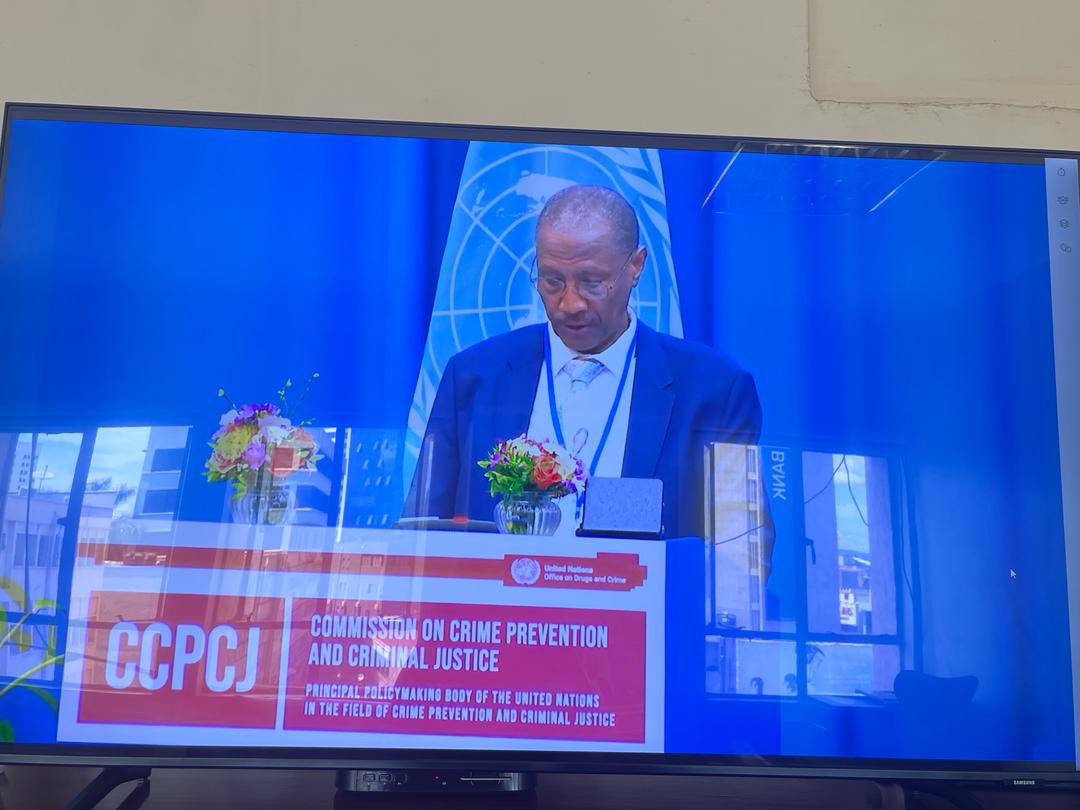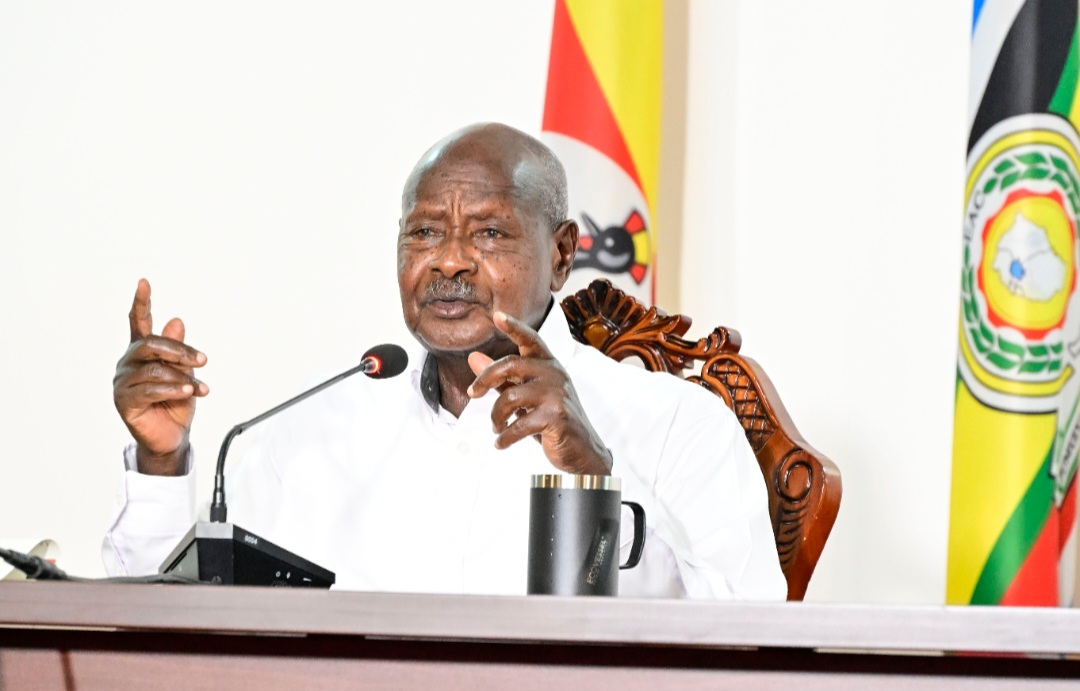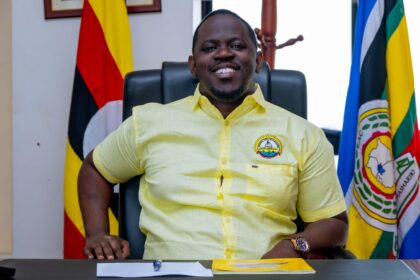The Deputy Chief Justice Richard Buteera has emphasized the crucial role of international cooperation and tailored technical assistance in combating organized crime, corruption, terrorism, and other forms of crime.
Speaking on Monday at the 33rd session of the Commission on Crime Prevention and Criminal Justice in Vienna Austria, focused on promoting international cooperation and technical assistance, Buteera underscored the importance of strengthening national legislation and policies to address emerging criminal trends effectively.
Uganda, like many countries, has benefited from the support of the United Nations Office on Drugs and Crime (UNODC) Field Office in Kampala and the UNODC Regional Office in Nairobi, which facilitate regional cooperation.
Buteera highlighted key areas where challenges persist, including training on emerging crime trends, data collection, inter-agency cooperation, victim protection, and offender prosecution.
At the international and regional levels, challenges to cooperation include differences in the implementation mechanisms of international instruments, lack of harmonized legal instruments, the prevalence of cash-based economies, and ambiguity in regulating cryptocurrencies.
To address these challenges, Buteera advocated for a multi-faceted approach involving institutional capacity building, transparency, anti-corruption initiatives, law enforcement training, civil society partnerships, and public awareness campaigns about legal rights.
He also emphasized the need for international frameworks to adapt swiftly to technological advancements. Buteera suggested proactive measures such as forming specialized crime-fighting teams, encouraging joint investigations and prosecutions, reviewing success stories, and clarifying the costs of mutual legal assistance.
Highlighting Uganda’s experience in combating terrorism, Buteera praised the country’s efficient investigation and prosecution of suspects involved in the 2010 Kampala bombing orchestrated by al-Shabab. The successful extradition of suspects from Kenya, Tanzania, and the UK underscored the importance of international cooperation in tackling terrorist cases.
However, challenges remain, particularly concerning the costs of mutual legal assistance and varying technological capacities among member states. Buteera called for greater clarity and cooperation in addressing these issues to enhance global efforts against crime.
“We are pleased to report that since the last session, Uganda has assumed the membership of this important Commission and is fully committed to the execution of the attendant mandate. We have also made substantial progress in the implementation of the UNTOC and its Protocols. Additionally, Uganda ratified the Protocol against the Smuggling of Migrants by Land, Sea and Air, and the Protocol to Prevent, Suppress and Punish Trafficking in Persons, Especially Women and Children, in March this year, Supplementing the United Nations Convention Against Transnational Organized Crime. We look forward to making our contribution to the relevant Working Groups of these Protocols,” he said.
Furthermore, Buteera urged that there is a need to ensure that international frameworks and legislative bodies adapt swiftly to rapid advancements in technology ensuring that legal frameworks can promptly identify and address emerging challenges, especially in the context of combating organized crime and terrorism.
One of the issues he issued was putting in place structures for proactive measures to fight crime and to facilitate research and inform the emerging trends in the criminal justice system. This could be done by forming teams that focus solely on putting in place proactive mechanisms for fighting crime.
Encouraging joint investigation and prosecution not necessarily by states affected by crime at a given time, but by teams to observe, document and make recommendations for future use.
“Reviewing mechanisms for success stories. Lessons can be derived from the Ugandan terrorist case involving the 2010 bombing orchestrated by al Shabab. This heinous act claimed the lives of more than 70 individuals in Kampala, who had assembled to witness the World Cup. Uganda demonstrated commendable efficiency in conducting thorough investigations and successfully prosecuting those responsible for this act of terrorism.”
“The suspects were diligently traced and extradited from Kenya, Tanzania, and the UK, highlighting the importance of international cooperation in the investigation and prosecution of terrorist cases,” he said.
On clarifying the issue of costs of mutual legal assistance, he asserted that this should be given more clarity if international cooperation is to be realized. “Most international instruments leave it to the requested country to determine if the cost involved is reasonable. Reasonability is left to individual interpretation which makes it even more complicated to practically comprehend and implement.”
Do you have a story in your community or an opinion to share with us: Email us at Submit an Article









